Germany ranks second after Poland in terms of the number of Ukrainian refugees taken in. According to the latest data, 967,000 people received temporary protection status in Germany. A significant number of them (115,000) stay in Bavaria. The Evangelical Lutheran Church of Bavaria and organizations related to it have actively helped and continue helping refugees from Ukraine since the first days of the full-scale outbreak of the war.

In Nuremberg, the largest historically Lutheran city in Bavaria and its surroundings, the SinN foundation (short for Seelsorge in Nürnberg – Care-for-the-Soul in Nuremberg) joined in the efforts. Since 2007 it was working with the immigrants from the former USSR that today make up 9% of the number of Lutherans in Bavaria. Some of them were also from Ukraine, so by the time the first refugees arrived from Ukraine, the foundation had already had some experience working with immigrants from our country.
Sabine Arnold, a historian, and a specialist in Slavistics, who is also the head of the foundation’s Russian-language project, shared about SinN’s work with Ukrainian refugees in and around Nuremberg:
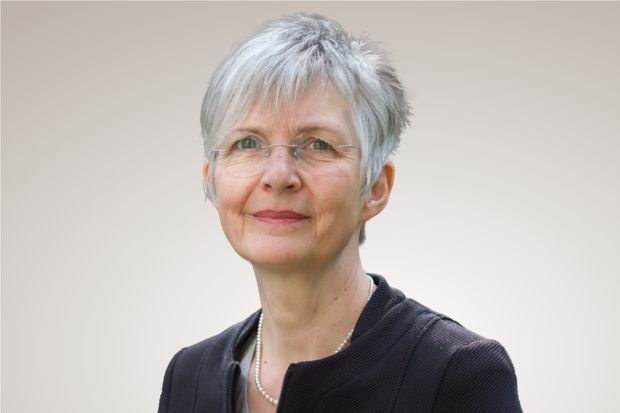
“As early as February 24 we initiated the first prayer for peace. On February 26 we held it in the largest church in Nürnberg – the Lorenzkirche. Since then, such prayers have been held there every Friday at 5:00 p.m. Prayers are read in German, Ukrainian, and Russian. We have also taken part in organizing once-a-month worship services in Russian in the Lutheran Church of St. Leonhard, attended by refugees from Ukraine.”
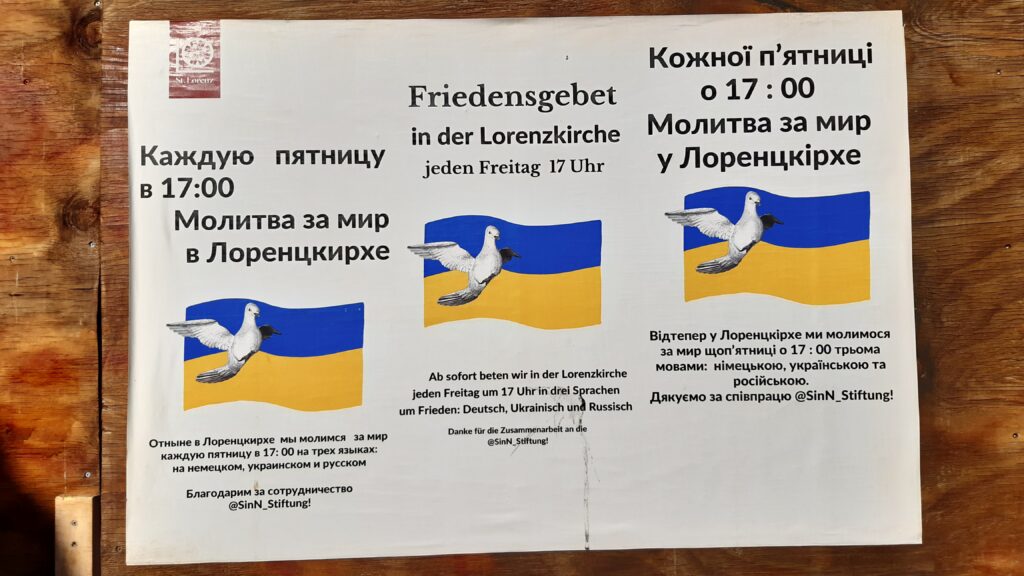
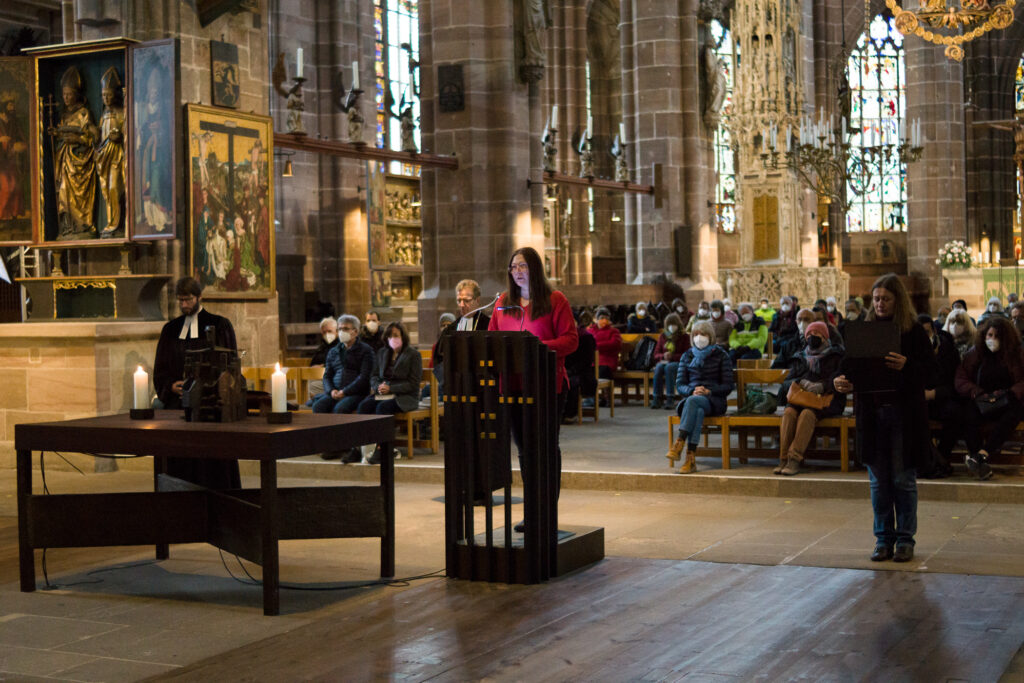
Apart from spiritual care, refugees need help to settle down. In Nuremberg alone there are currently about 8,000 people who fled from the war in Ukraine, half of them are children, and 80% of adults are women. Although the German government provides an unprecedented amount of assistance, it is difficult for newcomers to navigate in another country, often without knowing the language. Difficulties also arise in the work of government and communal institutions, which were not ready for the arrival of such a large number of refugees. Sabine Arnold also talks about the help provided by the Church through the SinN Foundation:
“Our goal is to help refugees reintegrate into society. When the first refugees arrived, our staff and volunteers started helping immediately. They looked for housing, organized a social kitchen, and raised awareness in communal institutions. The foundation organized German language courses for newcomers. We also started the “You are special” project to help refugee children with special psychoneurological developmental needs and raised funding for it.
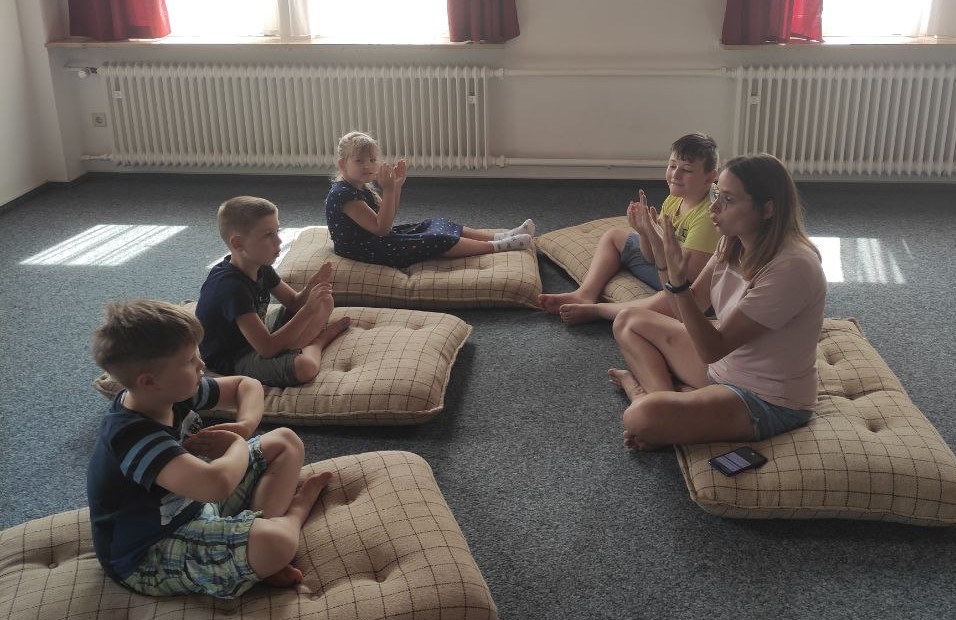
Since 2007, the foundation has been organizing day camps in the Schweinau district, a residential area with a particularly large number of migrants, including Russian speakers. They take place on the premises of the Church of the Holy Cross, where the organ of the Odesa church of St. Paul was previously installed. This year, we involved refugee children from Ukraine to participate in the camp, and their parents to help in the organization. The last camp was held on August 8-12, 60 children took part in it, half of whom are Ukrainian refugees.”
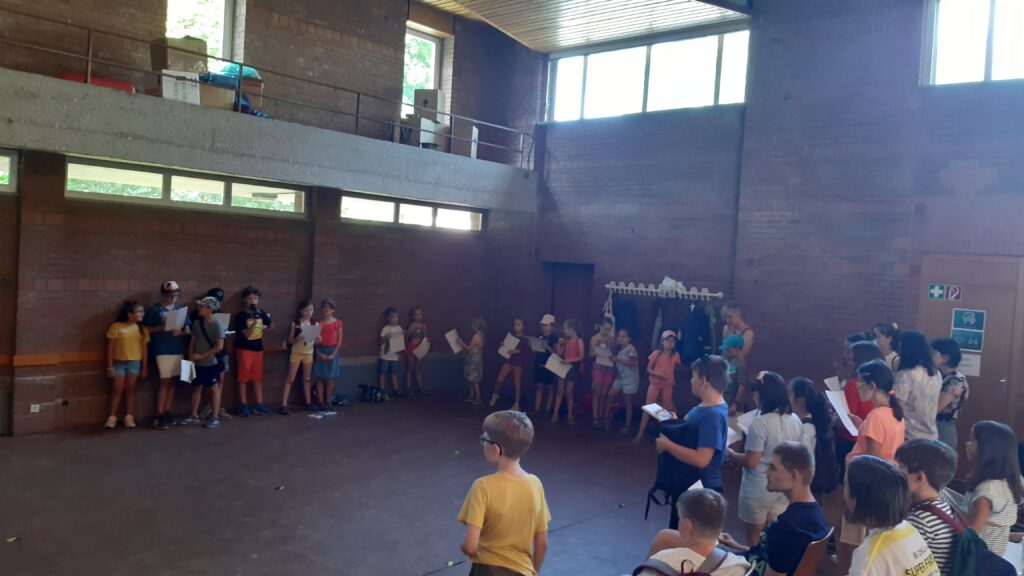
Nuremberg is only one of many cities in Germany, where the Lutheran Church serves refugees from Ukraine. About 5,000 of them are in Regensburg (the partner city of Odessa) as well as its surroundings. Regensburg is a small town, and Lutherans are a minority in it. Despite this, local evangelical organizations provide active assistance to refugees. The social hub of the Regensburg Lutheran Deanery is the old Alumneum building, where the dean’s office is located. Alumneum premises are actively used for educational and social work.
The office of the Evangelisches Bildungswerk Regensburg Foundation (EBR, Evangelical Educational Center of Regensburg) is located in this building. The EBR team quickly reacted to the arrival of the first refugees from Ukraine and got involved in providing them with comprehensive assistance.
Dr. Karsten Lenk, the head of the EBR, said: “The first Ukrainian refugees who arrived had a hard time finding German language courses to adapt to a new country. That’s why we organized Alumneum-based groups for them so that they can attend them until they have the opportunity to start their studies officially.”
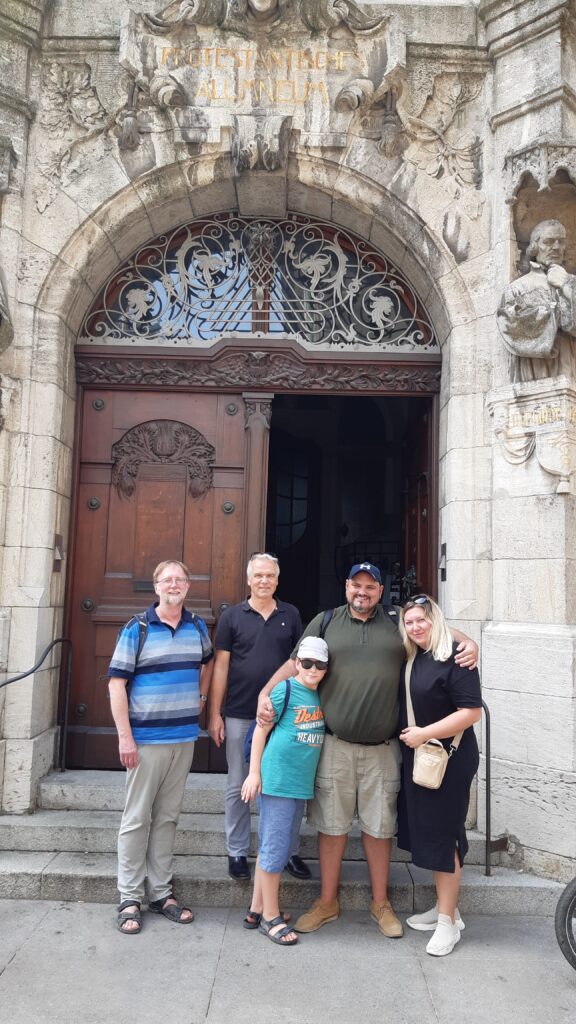
Thanks to the support of the Church and a very generous individual donation and financing, the Martin Luther Hall in the Alumneum, which previously held regular meetings in the family cafe format for local residents, opened the “Ukrainian Cafe”. It opened its doors to Ukrainian women and their children, who make up the majority of refugees, and is open every Monday afternoon and Friday morning. Adults can come and enjoy free drinks as well as food prepared by volunteers – at a very low cost. The cafe has a play area for children. The EBR team strives for “Ukrainian Cafe” to become a safe place for meetings, making acquaintances, and communication. Organizers who speak Ukrainian, Russian, and Polish, as well as a Ukrainian-speaking psychologist, are always present during the meetings.
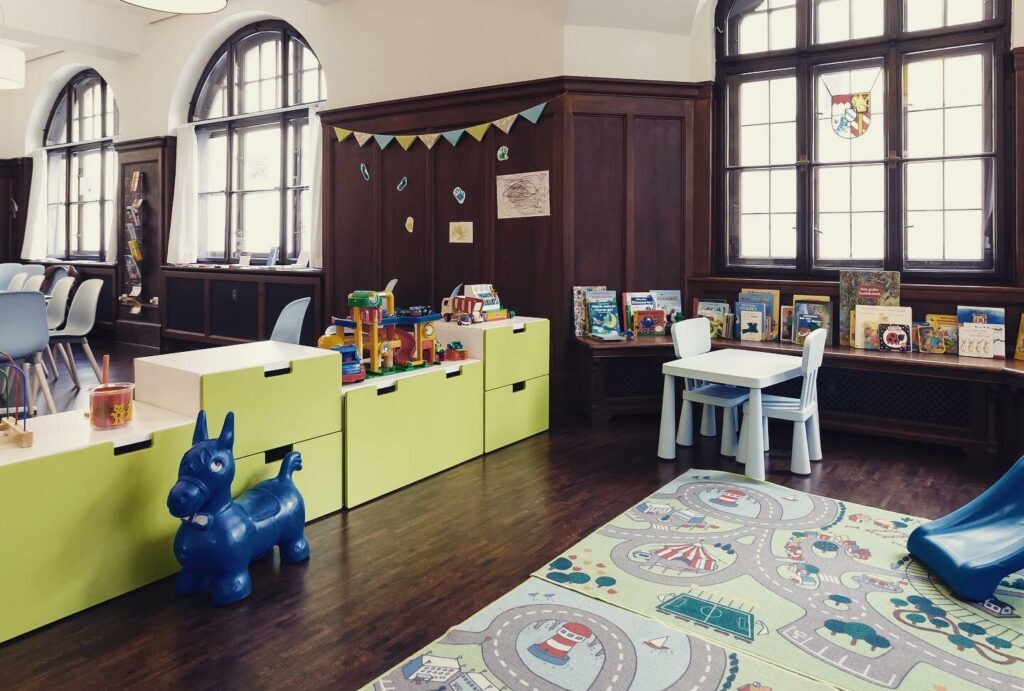
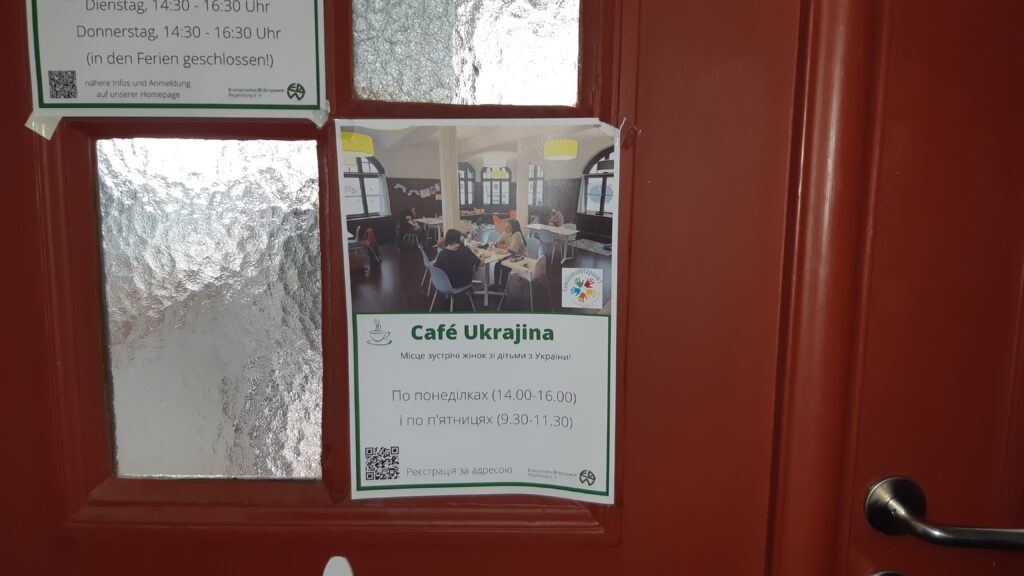
Birgit Koch, one of the project organizers, shares her impressions: “The support and help of the people of Regensburg were amazing. So many volunteers contacted us and offered their help!” The team is already planning new courses for visitors, such as baby-care courses
The Lutherans of Bavaria, like in all of Germany, have already provided and continue providing enormous assistance to refugees from Ukraine. The article describes only a fraction of the whole picture. Employees and volunteers of the Church and its foundations, with the support of generous donors, use their existing experience of working with other population groups, creatively adapting it to the current situation, and thereby fulfill the Lord’s commandment: “You shall treat the stranger who sojourns with you as the native among you, and you shall love him as yourself” (Leviticus 19:34)
Aleksandr Zhakun, a deacon of the GELCU in Odessa
